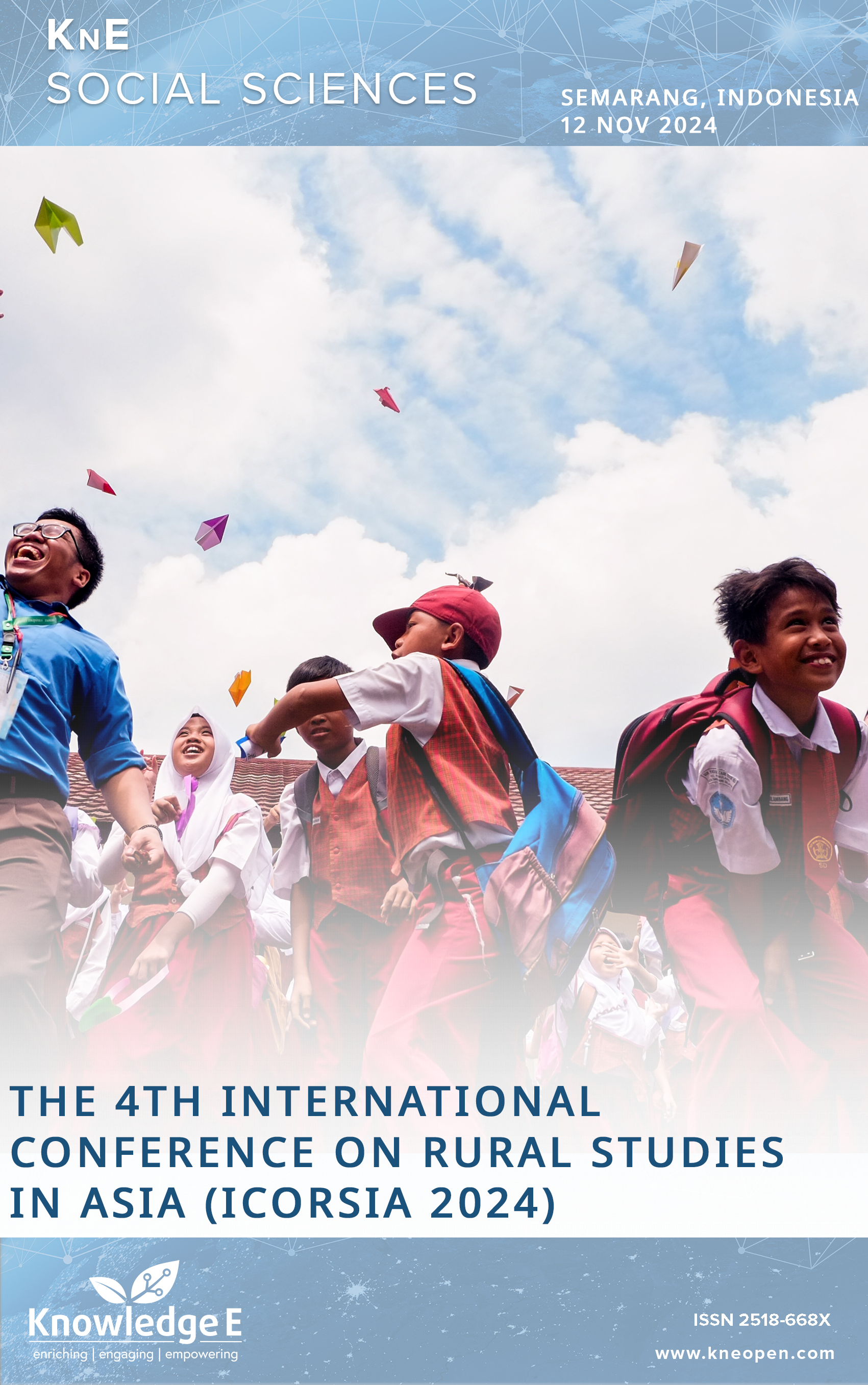Characteristics of Drought Exposed Areas in Kradenan Village, Kradenan Sub-district, Grobogan Regency, Central Java Province, Indonesia
DOI:
https://doi.org/10.18502/kss.v10i10.18656Keywords:
characteristics, drought, natural resources, human resourcesAbstract
Drought is a reoccurring phenomenon, with its impact spreading to more areas each year. Preparedness efforts rely on available resources, both natural and human. This study examines the characteristics of areas exposed to drought, focusing on natural and human resource variables. The study covers villages and their residents, using descriptive analysis and frequency distribution tables for data interpretation. Findings show that in areas experiencing drought, land use is divided into 31.51% paddy fields, 51.98% dry land, and 16.51% residential yards. The average annual rainfall is 171 mm, with rainfall occurring on only eight days per year. Rice fields use water from semi-technical and rainfed irrigation. Human resources in these regions are limited, with most residents having only primary school education and agriculture as their main occupation. Over the past five years, these areas have consistently experienced drought, highlighting the need for targeted mitigation strategies.
References
Muryani C. Community Adaptation to Drought Disaster in Grobogan Regency. Proceedings of the National Geography Seminar of UMS 2016. Efforts to Reduce Disaster Risk Related to Climate Change. ISBN. 978-602-361-044-0. Pp. 348-355 (2016).
Hastuti D. Sarwono, Chatarina Muryani. Mitigation, Preparedness, and Community Adaptation to the Danger of Drought, Grobogan District (Implementation as a Class X Geography Learning Contextual Module High School Class X Subject of Disaster Mitigation). Jurnal GeoEco. 2017;Vol. 3, No. 1 (Januari 2017) Hal. 47-57. ISSN: 2460 0768 (2016).
Mekuria, E.F. Spatial and Temporal Analisis Recent Drought Using Vegetation Temperature Condition Index Case of Small Regional State of Ethiopia. Jaume-1 Universitat (2-12) (2012).
Population Reference Bureau. World Population Data Sheet. USAID. Washington, DC. USA.www.prb.org (2015).
Tjakrawarsa, G., and Agung Budi Supangat. Characteristics of Drought in Gorbogan and Alternative Solutions. Article Proceeding of the National Seminar on Regional Independence in Disaster Mitigation Towards Sustainable Development. Surakarta 29 September 2015. PKLH UNS S2 Collaboration with IAKI and LAPAN (2015).
Farah UN, Prasetyo Y, Bashit N. Monitoring Potensi Kekeringan di Kabupaten GroboganMenggunakanPenginderaanJauhdanSistemInformasiGeografis.Media Komunikasi Geografi. 2024;25(1):97–119.
Mujtahiddin MI. Drought Index Analysis in Indramayu Regency. Jurnal Meteorologi dan Geofisika. 2014;Vol. 15. No. 2. Pp. 99-107.
Anonim. Undang-0undang Republik Indonesia Nomor 24 Tahun 2007 Tentang Penanggulangan Bencana. https://www.bnpb.go.id/ppid/file/UU_24_2007.pdf
Mishra AK, Vijay P. Singh. A Review of Drought Consept. J Hydrol (Amst). 2010;2010(391):202–16. Available from: www.elsevier.com
Schulzs TW. Investment in Human Capital. Am Econ Rev. 1961;5(1).
Werther, William B & Keith Davis., Human Resources and Personnel Management. New York: Me Graw– Hill, Inc;1996.
Central Bureau of Statistics. Kradenan District in Numbers. Central Bureau of Statistics. Grobogan Regency (2019).
Published
How to Cite
Issue
Section
License
Copyright (c) 2025 KnE Social Sciences

This work is licensed under a Creative Commons Attribution 4.0 International License.

